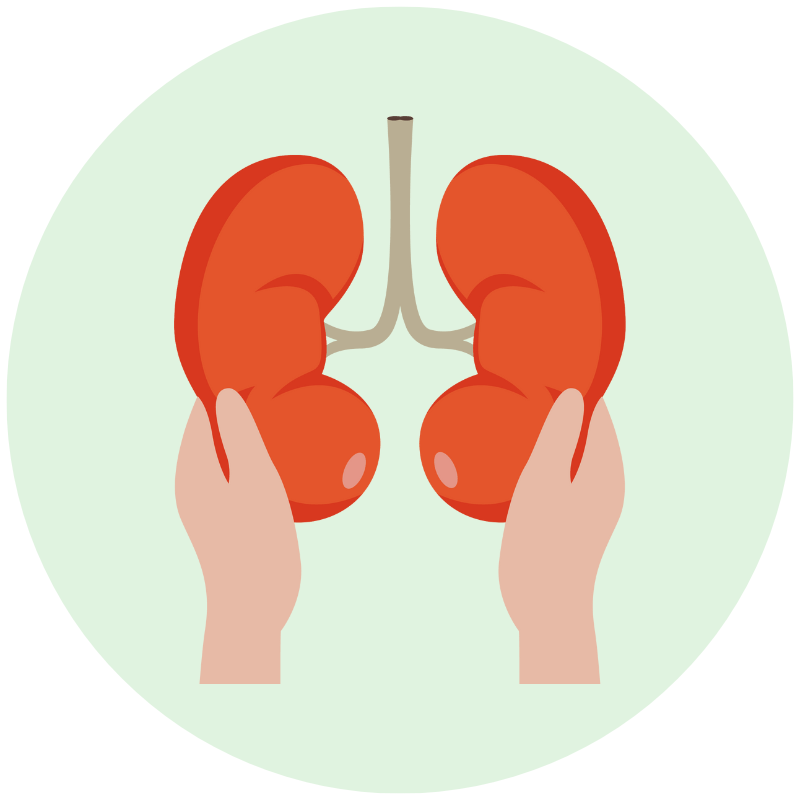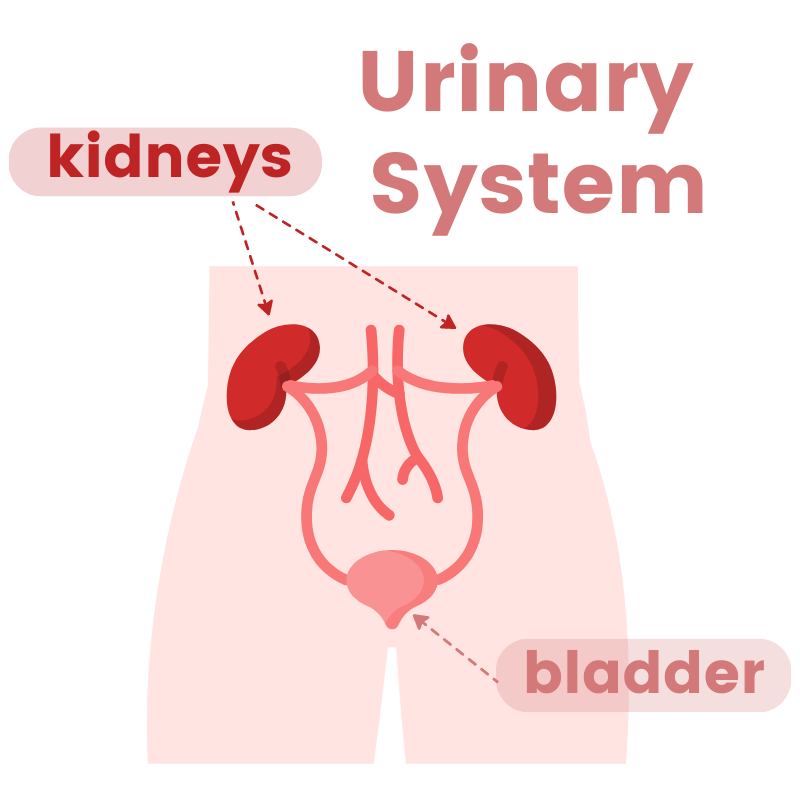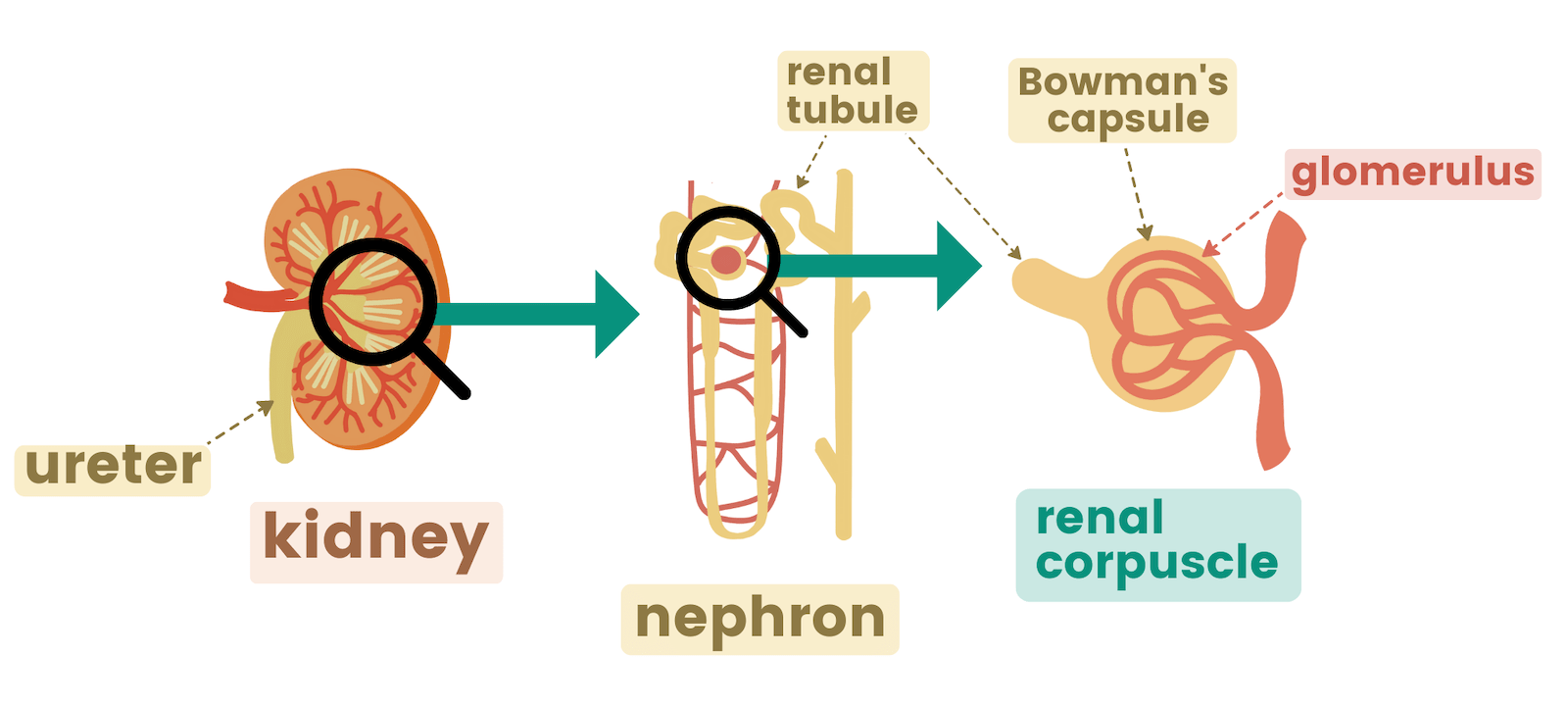Why should I learn about my kidneys?
Learning how your kidneys work, and your body overall, allows you to understand the “why?” behind common lifestyle habits and health recommendations you’ve heard before. The more you know about your body, the more informed decisions you can make to improve your present and long term health through things like diet and exercise. Lifestyle changes through health education can help to reduce the risk for preventable disease.

When you understand how your kidneys work, you’ll learn their connection to other parts of your body and the importance of taking care of your kidneys. If your kidney health is suffering, this could lead to other problems. Developing kidney disease can induce a whole other onslaught of diseases like heart disease, bone disease, anemia, or even arthritis. But, how exactly do kidneys impact things like your heart and joints? Well, to understand the connection, we need to know what kidneys do.
What do kidneys do?
Have you ever wondered why you feel thirsty after running a mile or lifting weights? You can thank your kidneys. Your kidneys are in charge of maintaining blood pressure and when you exercise, blood pressure drops as you sweat out water and salt.

Think of your blood vessels like pipes. When there is less fluid pushing up against the pipe walls, the pressure decreases. As blood pressure falls, the kidneys kick off a series of events that tell your blood vessel walls to squeeze. This increases your blood pressure back to normal.
Blood pressure is also maintained by your kidneys when they filter out waste products and return important nutrients back to your body. The kidneys actually filter around 200 liters of fluid per day, which is equivalent to about 5 standard kiddie pools!

How do kidneys work?
But how exactly do they do this? Well, your kidneys don’t work in a vacuum. If we really want to know how kidneys work, we need to understand them in their larger context of the urinary system.
The Urinary System
The urinary system is responsible for getting rid of the waste your body produces from making and breaking down different materials. These waste products end up in your bloodstream and then you pee them out.

Urine is made by the kidneys and then travels through a long, thin tube called the ureter to be stored in the bladder. This is how our kidneys operate in a larger reference frame. If we really want to know how kidneys filter our blood and maintain blood pressure, we need to zoom in closer at the kidneys and look at the nephron.
The Nephron

The nephron consists of the renal corpuscle and the renal tubules (“renal” means relating to the kidneys). Inside the renal corpuscle is the glomerulus, a small knot of blood vessels. This is where blood meets the nephron and is filtered by Bowman’s capsule, similar to a strainer.
Just like how a strainer allows water to pass through while keeping the pasta inside, Bowman’s capsule in your nephron allows waste to pass through while keeping important blood cells inside the glomerulus. Anything in your blood smaller than red blood cells makes it through into the kidneys.

Sometimes you want to keep pasta water to add back to your pasta sauce. Similarly, you might lose nutrients like sugar, protein, salt, and water we want to keep in our blood that slipped through the filter in Bowman’s capsule. The renal tubules are where these are reabsorbed. That way, we’re ultimately only getting rid of waste products we don’t want lingering around in our blood.
The more water is reabsorbed by the renal tubules, the more concentrated our urine is with waste. That’s why when you go a while without drinking water, your urine is darker in color.
However, if there are high amounts of sugar, proteins, salt, and water present in our blood this can increase blood pressure. Getting rid of this excess through urine is one way our body can decrease blood pressure back to normal.
In conclusion, it truly is amazing to learn how simple things we frequently experience, like sweat and thirst, are controlled by something we don’t give much thought to. Most of the time we take for granted how our bodies are complex laboratories that do so many functions for us without much attention. So, it is important to know why and when these systems might go awry.
When the kidney filtration system is not working properly, a buildup of salts, wastes, and water can accumulate in the bloodstream and cause problems. If your kidneys have difficulty filtering out waste from your blood, uric acid (a waste product from digesting purines) can accumulate and crystallize around your joints and cause a form of arthritis known as gout.
Other symptoms of kidney problems are high blood pressure, excessive fatigue, headaches, swelling and fluid retention, or pain in your lower back.

Gaining knowledge of how your kidneys work, you’re empowered to take an active role in safeguarding your kidney health. With this understanding, you can make informed decisions, engage in healthy habits, and be proactive in seeking medical attention if you experience symptoms of kidney problems. Regular health checkups that include kidney function tests can help detect potential problems early on. Becoming familiar with how your kidneys work also helps you to better understand what the values of your kidney function tests mean and their implications on your health. Apps like Guava make this process seamless, for easy access to health data and records.







